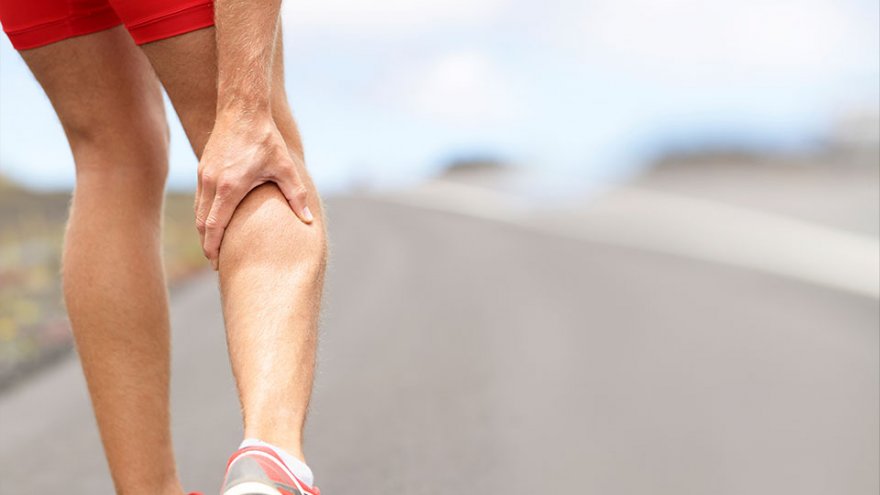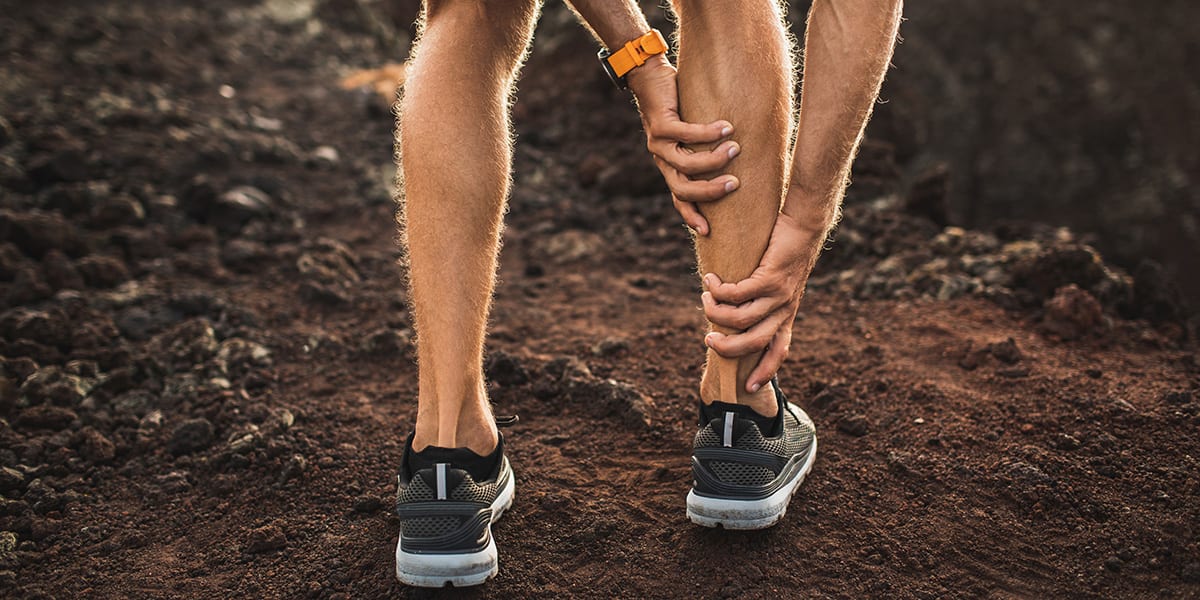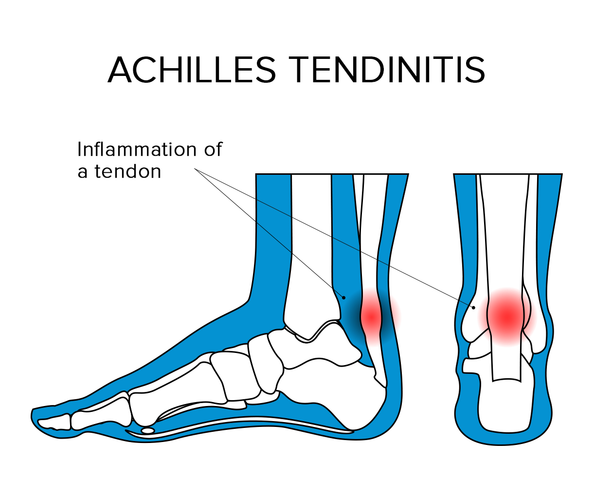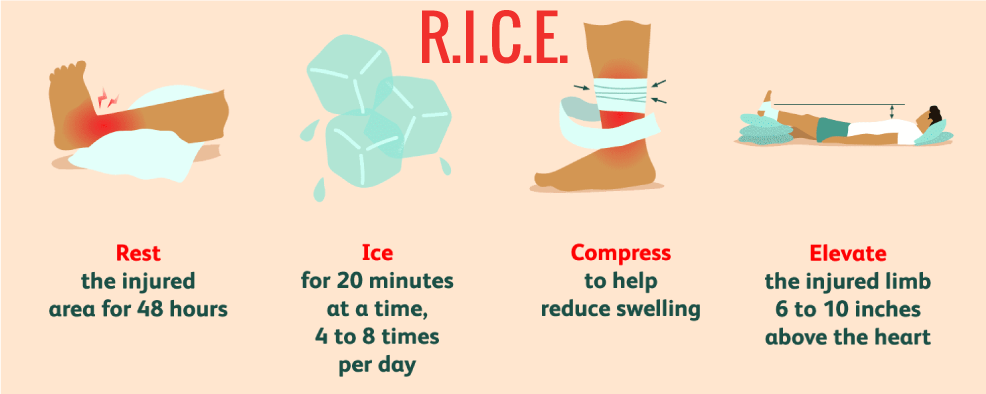How To Prevent Calf Pain From Running?

People who run, often find themselves suffering from various aches and pains in different parts of the body. Since running requires a lot of calf muscle engagement, it stands to reason that calf pain when running is possible.
What Causes Calf Pain When Running?
The first thing you need to realize is that there are many things that can cause your calves to hurt. First, if you are new to exercising and running, you should ask yourself if you are in the right shoes. If you are wearing shoes that are not suitable for your body and how you run, that can cause problems.
The next thing you should ask is if you are hydrating properly. If you find yourself getting calf cramps, you may not be adequately restoring your electrolytes either during or after exercise, or both.
Some athletes find these cramps happening during the night. In addition to proper hydration and consumption of electrolytes, some people find that taking an electrolyte substitute is helpful.
I find that during heavy training cycles, taking a salt tablet before bed helps me to prevent these cramps. While I am partial to SaltStick (see above link to find this amazing product!), there are many good options out there.
What Does It Mean When Your Calf Hurts When You Run?
First, you need to be able to ascertain if your calves are cramped, sore or injured. These are very different things. If your calf is cramping, it could be caused by an electrolyte imbalance, as explained above. In addition to that, if you are not accustomed to certain types of exercise, you might experience cramping.

An increase in exercise intensity can cause cramping. It is important not to ramp things up too quickly. Older people are often more susceptible to cramps. Also, if it is extremely hot and you are sweating a great deal, you may be more likely to get cramps. Dehydration can cause some awful calf pain from running or another exercise!
In addition, poor conditioning and/or inadequate pre-exercise preparations can be problematic. You should always warm up properly before exercise.
Is It Okay To Run With Calf Pain?
If you get calf pain from running, you should ask yourself what might be causing it. To understand your calves, you may want to know that there are three muscles making up your calf. These three muscles come together at your Achilles. When you run, these muscles all work together for three basic purposes.
First, the calf muscles give you the push-off when you run. Second, that motion propels you forward. Lastly, the calves stabilize your knee and ankle.
If your pain is something mild, it is perfectly fine to keep moving forward. If the discomfort does not ease up with slowing down a touch, consider stopping to stretch a bit. Sometimes, some calf-specific stretching can be helpful in alleviating pain.
How Do I Stop My Calves From Hurting When I Run?
Assuming what you have going on is not an actual injury, there are things you can do to stop your calves from hurting on runs!
✓ Hydrate! Proper hydration is a very important thing for athletes. If you hydrate well before and during workouts, your calves are less likely to cramp and hurt.
✓ Dynamic Warm-Ups: An old-school thought is to use static stretching before running. Newer research shows that stretching cold muscles can do way more harm than good.
✓ Stop and Stretch: If you start to hurt while running, you likely may need to just stop and stretch a bit.
✓ Slow Down! Another thing you can do if you have aching calves is just slow down some.
Calf Muscle Strains
If you experience sudden sharp pain in your calf during physical activity, you may have a strain. Also called a pull, this injury is common in athletes (runners in particular).

An injury to a muscle or tendon, a strain often happens during acceleration or when making a quick motion/movement in another direction.
How Long Should You Rest a Strained Calf Muscle?
There are different levels or grades of calf strains. If you have a level one strain, there are tiny micro-tears in the calf. With this type of strain, although you are in some pain, you likely can continue some limited, easy activity. Full recovery typically occurs in a couple of weeks.

In a grade two strain, on the other hand, there is a partial tear in the muscle. You cannot continue to run or do other types of activities through this injury. It will take anywhere from five to eight weeks to fully recover from this type of injury.
In a grade three strain, you have experienced a complete tear of the calf muscle. Sadly, full recovery can take months and some people even need surgical intervention to recover from this type of injury.
Initial Treatment For A Strain
When you first injure a calf muscle, try using the RICE treatment.
- Rest the injured area
- Ice to the affected area will help lower swelling and aid in discomfort
- Compression can be achieved with a simple bandage
- Elevation if your foot can reduce swelling
After you have rested it some, you may try implementing a range of motion exercises. These can help you heal. In addition, you might try stretching the calf muscles.
Many athletes benefit greatly from the use of a foam roller. A nice tool, many athletes keep one handy and use theirs religiously.
Other Causes Of Calf Pain?
It is important to remember that there are other causes of calf pain. For example, you could be experiencing cramps. You also could have a contusion of some type. Check the calf muscle area for bruising and other obvious signs of injury. Some people even have blood clots which are dangerous and can be deadly.
If your calves are in extreme pain and not getting better, you should seek medical attention. Lastly, if the calf pain seems to radiate lower down, it could actually be the Achilles tendon that is causing you trouble. Pay close attention to where the pain actually is!
Since your calves are so crucial to running, you really need to be sure to always warm up properly, cool down adequately and pay attention to this important part of your body!
Remember: healthy legs carry you across more miles!
Sources
- , Is Your Calf Muscle Pain Just a Strain or Something Else? , Health Website
Latest Articles
 Is Running on a Treadmill Easier Than Running Outside?Runners have their own preferences, whether it is treadmill running, running outside on the road, or exploring trails. So...
Is Running on a Treadmill Easier Than Running Outside?Runners have their own preferences, whether it is treadmill running, running outside on the road, or exploring trails. So... Is It OK to Use Trail Running Shoes on the Road?While trail running shoes can be used on roads, especially in situations where a runner encounters mixed terrains or pref...
Is It OK to Use Trail Running Shoes on the Road?While trail running shoes can be used on roads, especially in situations where a runner encounters mixed terrains or pref... How to Fix Sore Quads After Running?Rest, ice, gentle stretching, and over-the-counter pain relievers can help soothe sore quads after running. Also, ensure ...
How to Fix Sore Quads After Running?Rest, ice, gentle stretching, and over-the-counter pain relievers can help soothe sore quads after running. Also, ensure ... 10 Fruits With The Most Electrolytes to Replace Sports DrinksThese fruits are high in electrolytes such as potassium, magnesium, and calcium, essential for hydration, muscle function...
10 Fruits With The Most Electrolytes to Replace Sports DrinksThese fruits are high in electrolytes such as potassium, magnesium, and calcium, essential for hydration, muscle function...

